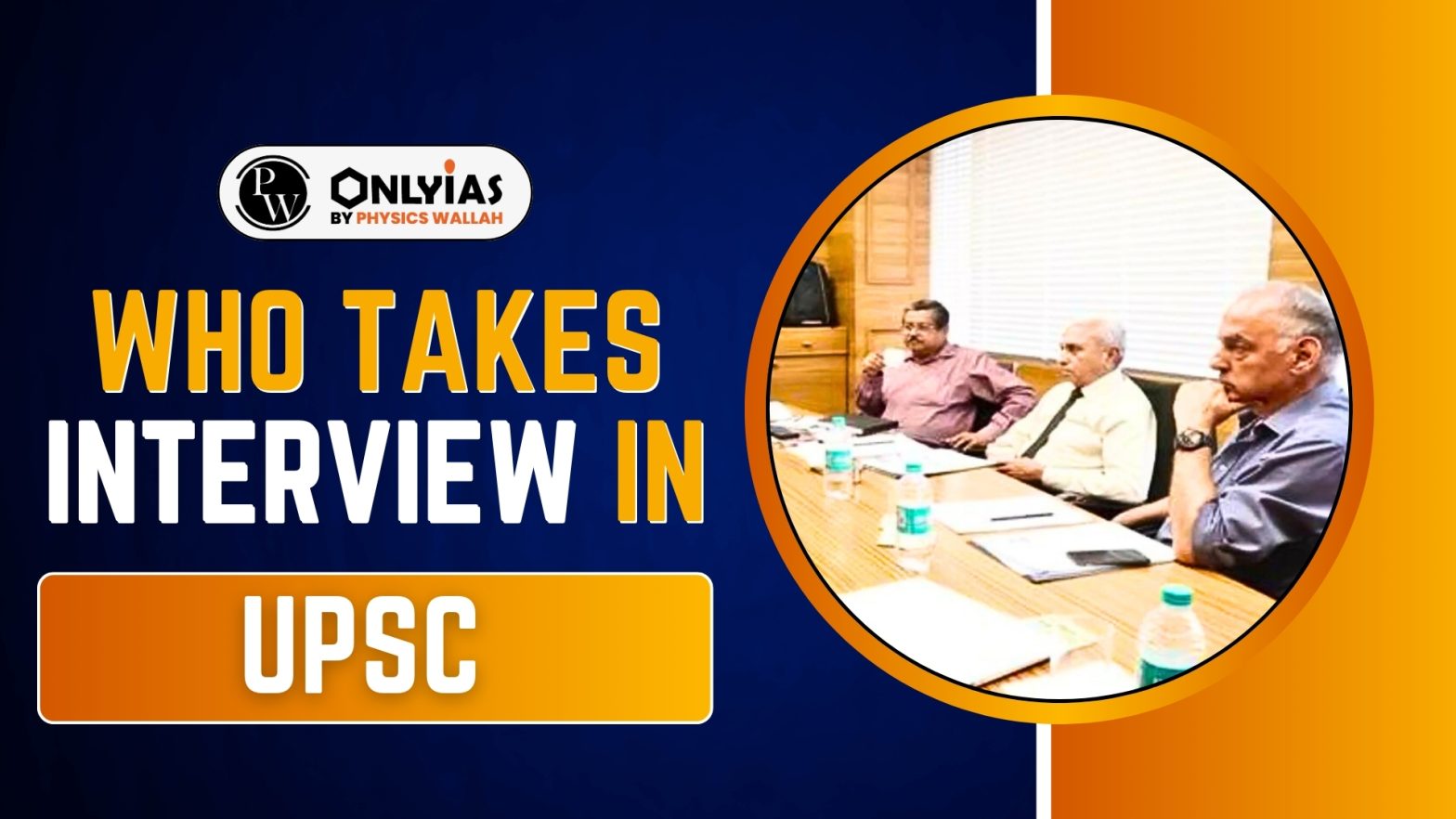Learn about the UPSC interview process, panel composition, types of questions asked, preparation tips, and more to help you succeed in this final stage of the Civil Services Exam.

Who Takes Interview In UPSC 2025: The Union Public Service Commission (UPSC) exam is the most challenging and prestigious examination in India. If a candidate has successfully passed the UPSC Civil Services Mains Exam, after that they have been called for the final round, which is the UPSC interview or Personality Test. When it comes to the Interview stage many candidates often wonder, who takes the interview in UPSC? We have created this informative guide, especially for Mains cleared candidates to provide a detailed understanding of the interview process, the composition of the interview panel, and what candidates can expect during this crucial stage.
The UPSC interview, which is also known as the Personality Test, is the final stage in the UPSC Civil Services Examination in the journey of becoming a civil servant. It not only evaluates the candidate’s knowledge but also their personality, presence of mind, and ability to handle real-life situations. The interview stage comprises 275 marks out of the total 2025 marks (Prelims + Mains + Interview), making it a significant component in determining the final ranking.
The UPSC interview board is responsible for conducting the interviews. The interview board is composed of a chairperson and four other members, all of whom are highly experienced professionals in their respective fields. Let’s us understand the structure more significantly:
The UPSC interview panel generally consists of:
Each member of the UPSC interview board brings a unique viewpoint and mindset to the table, making the interview more holistic. The diverse expertise ensures that candidates are tested on multiple aspects such as their knowledge, ethics, social understanding, and decision-making ability.
The members of the UPSC interview panel are assigned to assess a candidate’s overall suitability for a career in civil services. They do this by:
The UPSC interview process is formal in nature, but the UPSC interview exam is more like a conversation than a cross-examination. Here is how the process typically takes place in the interview room:
The UPSC interview questions are specifically designed to assess not just the knowledge of candidates but also their presence of mind, maturity, and how they approach problems. The questions can be broadly categorized as follows:
These questions are often based on the candidate’s DAF and might include questions about their hometown, hobbies, education, and work experience. For example:
The UPSC interview members generally ask about recent events or ongoing national and international issues. For instance:
These questions are used to evaluate the candidate’s decision-making abilities and ethical values. For example:
Candidates are often asked for their opinions on various social, economic, or political issues. These questions consider how well the candidate can express their views. For instance:
The UPSC interview process is generally hard to crack but it is not meant to discourage the candidates, it only evaluates the personality and temperament of the candidate. Some challenges include:
The effective preparation of the UPSC interview generally requires self-awareness, general knowledge, and practice. Here are some tips candidates may use:
The UPSC interview board plays an important role in evaluating candidates for one of the most respectable jobs in the country. Knowing who takes the interview in UPSC, the process they follow, and the type of questions asked can help candidates prepare better and increase their chances of success. The key to qualifying this stage lies in confidence, clarity of thought, and a strong understanding of both personal and societal issues.
Check Out UPSC CSE Books
Visit PW Store
The UPSC interview board members include a chairperson and four other experienced professionals from diverse fields, such as retired civil servants and experts.
Candidates who successfully clear the UPSC Mains Exam are eligible for the UPSC interview or Personality Test.
The UPSC interview process involves a formal assessment by the UPSC interview panel, focusing on the candidate’s personality, knowledge, and decision-making skills.
The UPSC interview panel consists of a chairperson and four members, who are typically senior professionals or retired officials.
UPSC interview questions include personal background inquiries, current affairs, and situational questions to assess the candidate's overall suitability.
A typical UPSC interview lasts between 20 to 40 minutes, depending on the candidate's responses and the UPSC interview board’s evaluation.
<div class="new-fform">
</div>